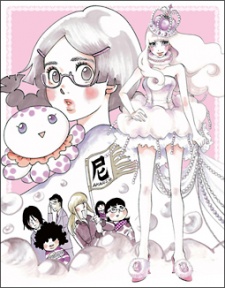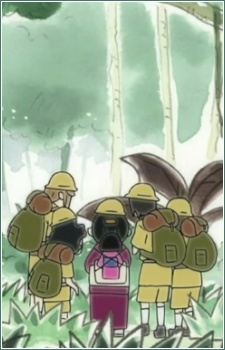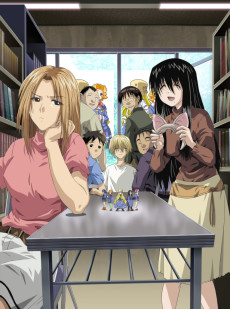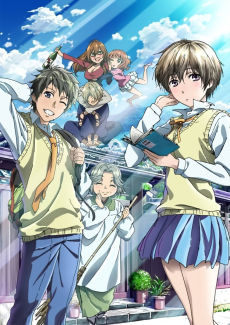KURAGEHIME
STATUS
COMPLETE
EPISODES
11
RELEASE
December 31, 2010
LENGTH
22 min
DESCRIPTION
Plain, timid and obsessed with jellyfish, Tsukimi is a far cry from her idea of a princess. Her tepid life as a jobless illustrator comes complete with roommates who harbor diehard hobbies that solidify their status as hopeless social rejects. These wallflowers run a tight, nun-like ship, but their no-men-allowed-not-no-one-not-no-how bubble is unwittingly burst after Tsukimi brings home a rescued sea jelly and a beauty queen... who's actually a guy.
When the threat of losing their cozy convent inspires this glamour boy to turn the neurotic entourage into a portrait of success, will Tsukimi take her chance to bloom, or will she end up a hot mess?
(Source: Funimation)
CAST
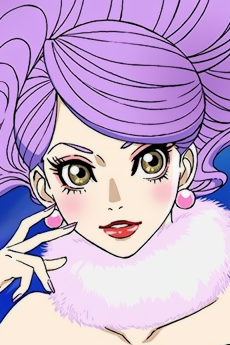
Kuranosuke Koibuchi
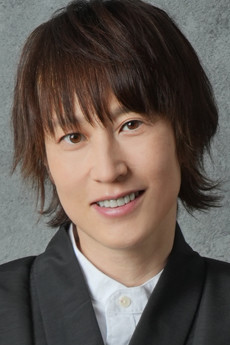
Mitsuki Saiga
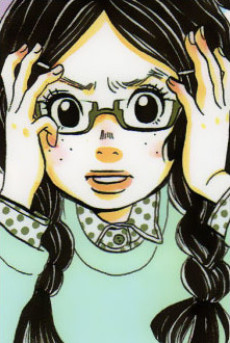
Tsukimi Kurashita
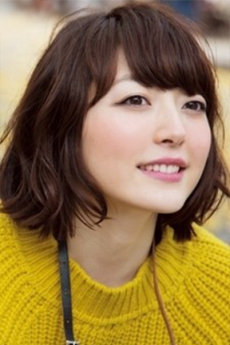
Kana Hanazawa
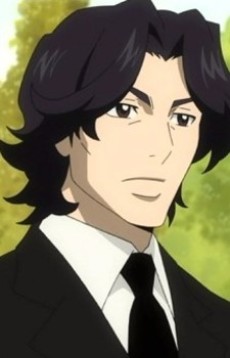
Yoshio Hanamori
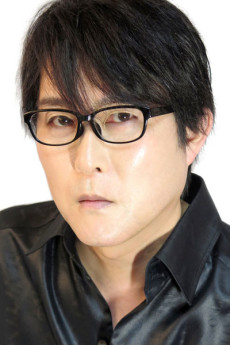
Takehito Koyasu

Clara
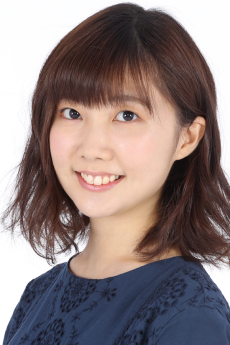
Sumire Morohoshi
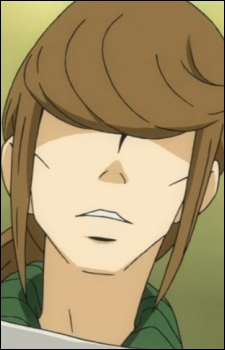
Mayaya

Akemi Okamura
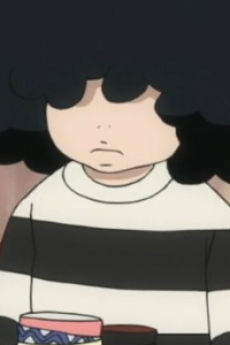
Banba
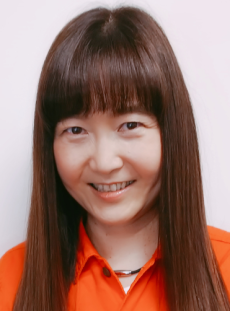
Motoko Kumai

Jiji
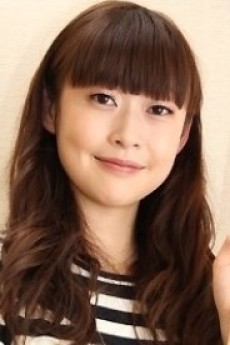
Mamiko Noto
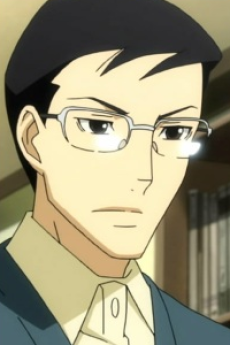
Shuu Koibuchi
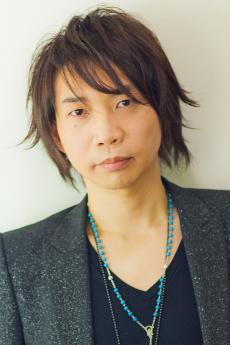
Junichi Suwabe
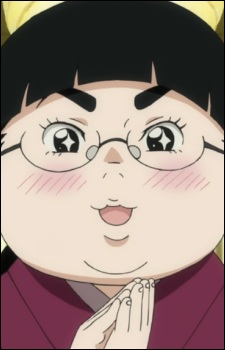
Chieko

Kimiko Saitou
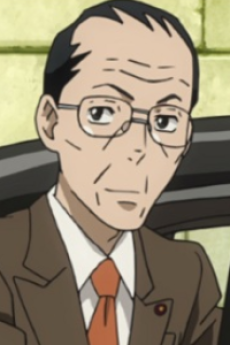
Saburouta Negishi
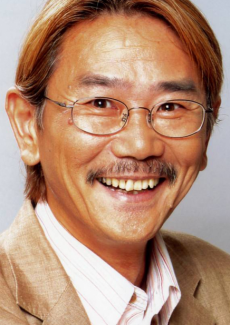
Shigeru Chiba
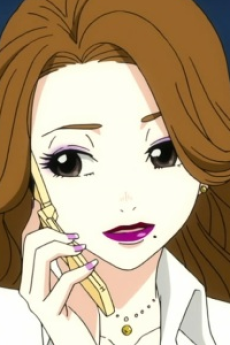
Shouko Inari
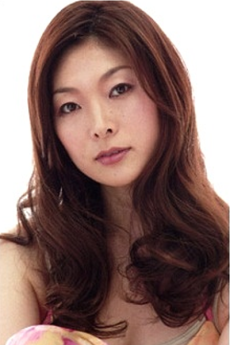
Junko Kitanishi
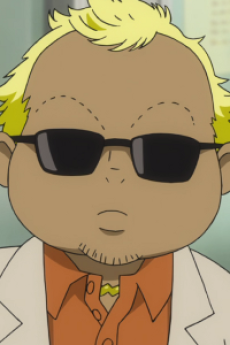
Sugimotsu-chan

Kentarou Itou
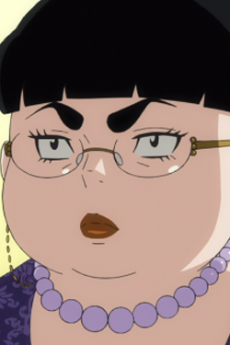
Chiyoko
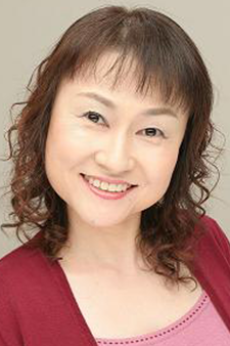
Kaoru Katakai
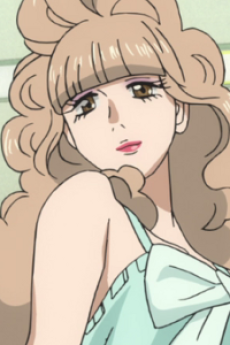
Sara
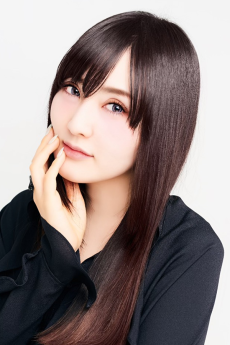
Eri Kitamura
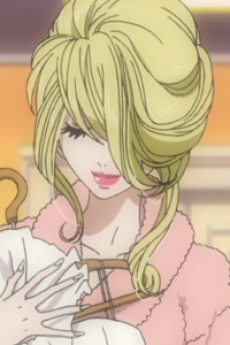
Lina

Seiko Yoshida
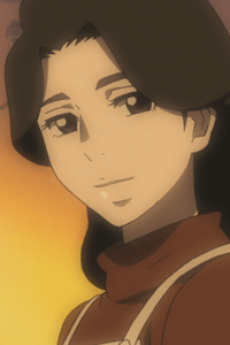
Tsukimi no Haha
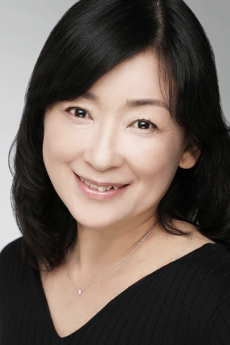
Yuuko Minaguchi
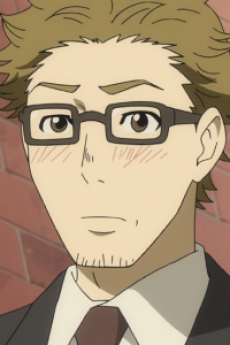
Inari no Buka
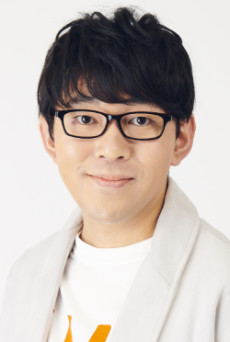
Yuuki Ono
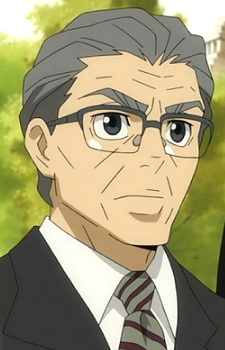
Keiichirou Koibuchi

Mugihito
EPISODES
Dubbed
RELATED TO KURAGEHIME
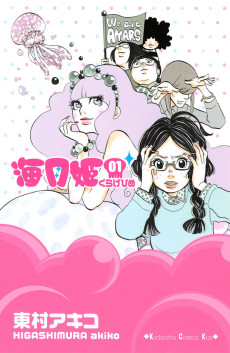 MANGA ComedyKuragehime
MANGA ComedyKuragehimeREVIEWS

MermaidDork
80/100Short, but sweet, made me want to read the manga <3Continue on AniListOjalá verme si quiera un poco como Kuranosuke aaaaaaaaa ;_;
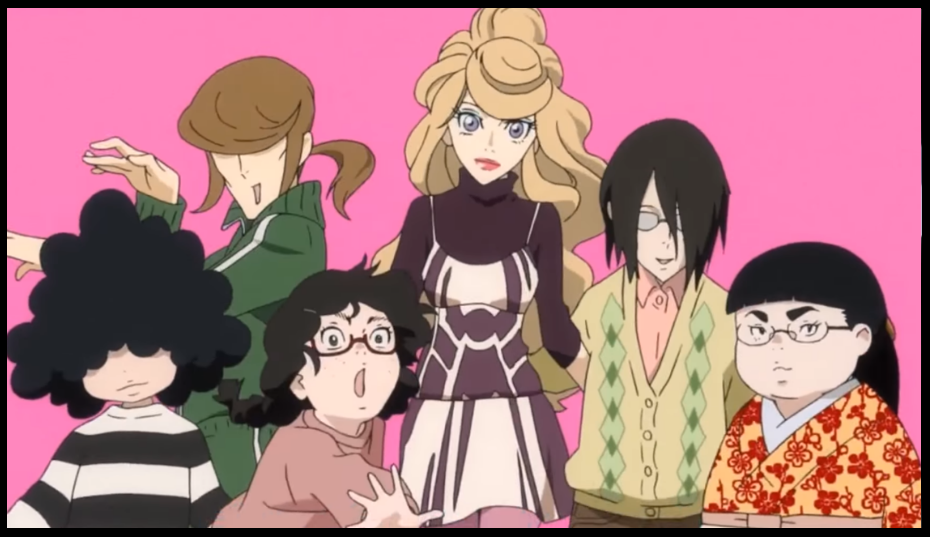
Obviamente mis partes favoritas de esta corta historia son respecto a la relación entre Tsukimi y Kuranosuke, pero las demás chicas de la sororidad me encantan por igual (Banba ftw).
Muchas páginas describen la forma de vestir de Kuranosuke como una herramienta para evitar sus obligaciones como hijo de un político, y aunque esa descripción sí está en el texto, es más que obvio que esa no es la única razón.
Por lo general desconfío de narrativas que justifican que sus personajes desafíen estándares de género debido a cosas que les pasaron en el pasado, es rara la vez en la que un personaje simplemente se viste como quiere por que simplemente quiere.
Se que tenemos el trasfondo de la madre de Kuranosuke amando mucho los vestidos y como fijó esa afición en él, pero no siento que esta serie lo pinte como "arruinar su vida" o algo por el estilo como muchas otras narrativas lo harían con este concepto, no lo se, me gusta que no tenga por qué haber una explicación para su manera de actuar, él es quien es, y punto.Tsukimi es otra onda, como persona que ha pasado épocas de neet (marca registrada) recientemente, comprendo demasiado bien muchas de las actitudes que toma con la vida, y aunque no traigo la misma timidez social, si he llegado a sentirme como al final del camino, no en un sentido trágico, sino el de "de aquí no vas a subir más", así que me animó mucho verla encontrar su vocación en la confección de vestidos, al menos asumo que en esa dirección iba la historia, no se porque no siguió la serie aaaaaaaaaaaaaaaaaaaaaa
Ahora, las aficiones de todas las miembros de la sororidad si son algo que entiendo. Si bien tengo un problema grave de gustos pasajeros, al menos en el corto tiempo que me dura una obsesión, realmente se convierte en algo similar a lo que muestran, me gusta que la serie lo represente de manera tan neutral, consciente de que este tipo de aficiones pueden ser un gasto peligroso, pero que al mismo tiempo no tiene nada de malo que cosas tan específicas signifiquen tanto para nosotres.
Toda la historia de Shu me pareció muy poco cocinada, se nota que le faltaba mucho combustible todavía, y bueno, a pesar de que sus relaciones son un foco de la serie casi todo el tiempo sentí nula su presencia en su mayoría, terrible, también está esa parte en la que se implica algo que le ocurre que no me sentó bien para nada, pero bueno.
En fin, perdón por el rambling tan poco interesante, me pareció una serie relajante y súper reconfortante ¡quería que durara más! De hecho me ha animado a leer el manga, cosa que definitivamente no hago yo.
En fin, quiero todos los atuendos de Kuronosuke.
Excepto los tacones. No estoy liste para usar tacones.
YuiHirasawa39
59/100Interesting concepts and engaging themes, lacking conclusion and story resolutionContinue on AniList“They shall be married to-morrow, and I will bid the duke to the nuptial. But, O, how bitter a thing it is to look into happiness through another man's eyes!” – Orlando, As You Like It, Act V, Scene II
It takes little more than the first episode of this show to realize that Princess Jellyfish is Shakespearean in nature. Indeed, the anime is primarily one of disguise and front, a topic popularized in western literature by the legendary playwright. I won’t make the effort to argue that Princess Jellyfish is entirely Shakespearean, however, as I think this is where the show finds both its highest strengths and lowest weaknesses.
Let’s look, as usual, at the various categories. The art – it’s pretty good. I never found myself blown away by any means, but the art seemed appropriate, especially during some of the ethereal underwater scenes. On a related the topic, I found the animation not spectacular but at least very consistent. While I can’t exactly praise it, I could describe it as “pleasant” and definetely unobtrusive. I do appreciate the fact that this show is, by design, based around the use of color to tell the story: the subdued blues in Tsukimi’s dreams reflecting her escapism is a great example of this. Is it fantastic? No, but it works pretty well.
Next, the soundtrack. It’s…just okay. The OP is decent, I suppose, as is the ED, but one thing that struck me most about this anime is just how little I felt the soundtrack played into the storytelling process. I wrack my brain to think of a single time where the score added to the drama, and I come up short. This isn’t the case for most other anime that I’ve seen – it’s normally not difficult for me to associate one particular part of a truly good soundtrack with a critical part of the show. I’m not saying that this is a necessary prerequisite for an anime to be good, but it certainly helps.
Here’s where I’d usually move onto the characters or plot – and I’d like to jump into both simultaneously here, as they’re very interconnected. It’s also here I’d like to return to the opening quote. Looking at something “through another man’s eyes” is a key tenant of the show, and not only because much of the comedic motif is based around a man who dresses as a woman. Indeed, the Shakespearean disguise is a prevalent theme in his comedies, and often analyzing the disguised’ motives is important in uncovering significant related themes. Similarly, digging into Kuranosuke’s motives helps to reveal his character. And it’s not just him – I’d go so far to argue that most of the show’s characters possess some sort of disguise that is challenged throughout its course.
Now that all sounds very serious and literature-y. But just as As you Like It was designed as a comedy, so is Princess Jellyfish. The show, dare I say it, has some excellent humor as it opens. The Amamizukans’ attitude toward “trendy” culture, general fear of the public, and sense of isolation are portrayed in a humorous (though primarily slapstick) manner, and rarely in a crude way, which I appreciate. I personally also found all the drama surrounding Shu and his awkward personality to be hilarious during the first few episodes. The fact that so many of the surrounding characters are primarily present for comic relief (I can’t help but think back to Touchstone, myself) somehow works itself out as well.
However, I can’t help but feel somewhat more disappointed with the progression of the comedy as the show moves on. In particular, I think the show hit its peak around episodes 5 and 6, when Kuranosuke gives the sisterhood disguises of their own. It’s here that the thematic question of identity – reflected frequently in Tsukimi’s introspections – are at their most poignant. Who is she, and who does she want to become? Unfortunately, the plot develops quickly into the unfortunate love triangle, which stagnates the disguised motifs. The humor of Kuranosuke’s true identify becomes old as it seems to drag itself on as the drama unfolds. Some of the comic relief characters’ tropes become a bit more tired out. I don’t know quite how to describe it, but the show seemed a lot less comedic to me at the end than the beginning, and even the hilarious gag jokes surrounding Yoshio’s beloved Benz couldn’t quite redeem it.
That being said, my biggest frustration with this show came with its resolution. The ending felt a bit rushed – sure, we find out that Chieko’s mother has given up plans to sell the property, but this almost seems like a bandaid fix over the lack of resolution in the money-making arc. We never get a resolution to the love triangle or Tsukimi’s true feelings for either of the Koibuchi brothers, as the elder finds himself conveniently shipped out of the country on the same plane as the antagonist (who, I’ll give the studio credit for, is satisfactorily evil).
Most, however, we don’t get the Shakespearean revelation that I waited for since the first episode. A key moment in the Comedies is when true identities are revealed – Hymen’s role in revealing the man Ganymede as the woman Rosalind. Kuranouske has to look at his situation through the perspective of his disguise, something that we know from episode 4 to greatly frustrate him. He, just as Orlando does, “looks into happiness through another man’s eyes.” Similarly, we see relatively little resolution about the identity of his mother, and the suggestion that Shu is holding the knowledge of her disappearance (or death) above his younger brother. This frustrates me not only because the revelation is such a key moment in the Comedies, but because we miss out on all the character development that comes with it.
Now, don’t misunderstand me – I don’t think that a comedy has to exactly mirror Shakespeare to be successful. I just think that it’s shame that a series that so very obviously borrows from these motifs doesn’t carry them through to the conclusion. Maybe my tone would be more positive if the comedy was better maintained, the drama better developed, or even if we saw some legitimate character development in the side characters (who themselves are disguised – come on, we never even get to see the eyes on three of them!!).
So how do I conclude? Princess Jellyfish is a good comedy that starts out very strong with some really excellent references to famous motifs in literature. The topics it touches on extend far beyond what I discussed here. I personally think that the MCs are both sincerely interesting characters. However, the anime does not satisfy me in its conclusion – perhaps with a full 24-episode adaptation, more could have been done. Full disclosure: I haven’t read the source material, and maybe I would be satisfied with how that finds the end. But the anime in and of itself disappoints me with a strong start and unsatisfying finish.

GreenRevue
80/100Princess Jellyfish wants people to realise they're beautifulContinue on AniListPrincess Jellyfish is a very good show that was becoming really great yet ran into the upsetting situation that is cancellation, impacting the conclusion and pacing negatively. However, it was nevertheless strong. I am currently checking the manga out one as a result.
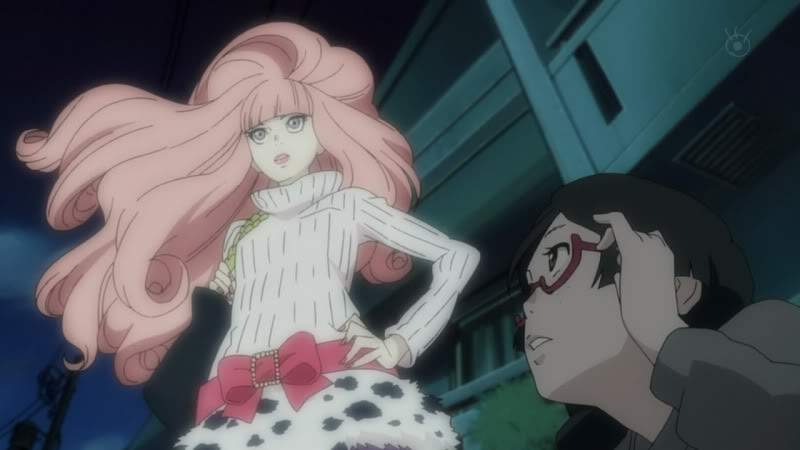
To begin with some negatives to get them out of the way (I have many positives later! I really like this show!), beyond the unfortunate incompleteness, the show certainly has its reliance on tropes. There is a long stretched out love triangle, lots of running away, and so forth. However, it feels fairly careful in its use of these tropes, and is surprisingly fresh in many other ways.
To name some more negatives, I also found that some of the comedy fell flat for me, mainly because I was aggravated fairly frequently by Mayaya as a character. The comedy did hit at times, however, and I particularly liked the Mercedes chauffeur guy. I also wasn't personally a huge fan of the love triangle, as it had an age gap involved, but it never went anywhere bad, and they are all adults, plus it felt like it had thematic relevance that could be argued for.
Moreover, I personally was unsure of the exact intent of the side plot with the brother and the women from the regeneration company; it was engaging and I can gauge a bit of meaning from it, but I can't say I have fully grasped it's thematic relevance. However, that is likely a me problem as opposed to one with the show itself, and the manga may also clear that up for all I know, the show was upsettingly canceled after all.
Now for some positives, analyses, and other fun stuff:
To begin, Princess Jellyfish deals carefully (yet also comedically when it wants to) with interesting themes around appearances, self doubt, inner beauty and outer beauty, femininity, social anxiety, otakudom, and more.
To roughly quote the lovely ED:
I want you to realize it That you're so beautiful
This feels like perhaps the main thematic through line.
Tsukimi and her self proclaimed sisterhood are all hardcore otaku, one is really into traditional Japanese stuff, one is a train otaku, one likes old men, etc. This is very much used for over the top jokes, but it is probably a laughing with (as opposed to a laughing at) situation in many of the cases. I feel this is cleared up when later on a character tries to suggest selling the dolls of another to get needed money, but the show doesn't let them, and makes it very clear through character dialogue that as silly as it may seem, these things are important to the characters.

It furthers this idea later on, our main girl Tsukimi is a jellyfish otaku, and the show runs with this in many interesting ways, for a smaller example to start, due to her personal connection to them she uses her dreams of jellyfish to escape and forget.
Her fascination with jellyfish is a connection point with her deceased mother, with flashbacks reminiscing on a memory of her mother at an aquarium. Her mother stated that all girls grow up to be princesses and that she wants to make her daughter a pretty white dress that looks like a jellyfish one day. A seemingly harmless statement at face value, but it lends to the show's exploration of femininity (something I don't feel that qualified to talk about per se, but I shall attempt to. Please correct any potential mistakes and ignorant interpretations).Tsukimi starts the show lamenting that something must have gone wrong. Now an adult, she does not believe she has become a princess, and is full of social anxiety and awkwardness. However, the show makes it clear that she is nevertheless happy in her little Otaku corner of the world, she says so herself, and the OP ends on a shot of them all looking out the windows of Amamizukan with a warm tone to the shot choice and music. A lot of the show is specifically about them defending their home as well.
Princess Jellyfish shows there is more to people than societal and traditional expectations, yet doesn't make liking pretty and cute stuff out to be inherently wrong or bad either. Moreover, through the cross-dressing Kuranosuke (I love his outfits) and his impact on the characters, shows that there is nothing wrong with liking that stuff, no matter your gender. Tsukimi still wants that dress as well, and it flips the idea of dressing up into it being a weapon to deploy. Tsukimi gains confidence when dressed up, and Kuranosuke dresses the whole group up when conflict arises. He very clearly states that in a world that judges by appearances you sometimes need to dress up to fight, but that he would not dress them in a way that is untrue to themselves.
Tsukimi's love of jellyfish, her passion, later gets validated too, she is able to start using it for fashion, and beauty is seen in her interests as a result (credit to the video by Pedantic Romantic for bringing this specific point to my attention). To add more to the theme of appearances, Kuranosuke unsurprisingly starts to fall in love with Tsukimi throughout the series (I don’t really think this is a spoiler, but apologies if it feels like one to anybody). I may be misremembering, but if I am remembering things correctly, towards the end Kuranosuke slowly begins to find Tsukimi cute even when she is not dressed up. Kuranosuke often questions as to why he feels that way, stating that due to his looks he could always get whoever he wanted, so why her. The answer is never stated, but it is clear, personality. Beauty is not everything, and as cliché as it is to say, can be in the eye of the beholder. You could argue that the love triangle acts as an illustrator of this, though this may be a stretch on my behalf. Kuranosuke comes to love Tsukimi’s personality, while his brother just loves her looks when she is all dressed up and in makeup, and he doesn't even recognise her when she isn't dressed up, thinking that she is disgusting.
Kuranosuke seems like a well written character to me, clearly stating that he may crossdress but that he is perfectly normal in the first episode. The show briefly then looks like it might go a weak route, when he says he crossdresses to avoid carrying on the politics of his family, however, at the end of the same episode he makes it clear that he also does it because he likes fashion. He likes it. Traditional femininity is shown as both a weapon to be deployed and something that can be enjoyed. Nuance is present throughout.
Another thing to note is that the cross dressing is sometimes used for some comedic moments but never based on laughing at him, but on him purposefully messing with the people around him, and focusing on the the awkwardness of trying to avoid letting it come out that he is a guy to the Amamizukan dorm members (due to their female only rules for people allowed to enter their apartment), plus some awkward interactions where he switches back to being a half naked guy around our main girl (it’s not done in a bad or creepy way in my eyes, don’t worry).
Now to talk about the visual direction. In all honesty, I can't claim that I looked closely enough to notice much in terms of the direction of the work, beyond a strong overall aesthetic with good colours. Generally it didn't stand out too much in terms of storyboards and such, but I could potentially have found something to note if I had looked closer. Takahiro Oomori is a good director with a lot of versatility, and his stuff always looks good. However, I do still have several things to say, especially around the OP later on (which he handled).
Firstly, I want to say that the colours were very nice, with an aesthetically appealing palette throughout the show. Moreover, the animation and character designs (and character expressions) were all very fun, kinetic, and energetic, with some storyboards facilitating that dynamism, a rolling scene comes to mind where they roll towards the camera. A good amount of charismatic comedy (and general) character acting.
I also want to note that the jellyfish flashback scenes are all done rather well in terms of atmosphere and mention the shot where Tsukimi is carried to her bed and it's intimacy. Continuing on, a particular scene that sticks in my mind is when she is at her lowest, things become metaphorical and Tsukimi sinks down into the pavement (that scene has a great quote in it too that fits perfectly into the themes).
One thing that I can note in a good amount of detail however, is some stuff I liked a lot visually in the OP. I thought the pop culture references in it were fun, and I have already mentioned the final shot of the OP where you see the whole of the dormitory looking out their windows and one sweeping out the front. However, the main thing that I wish to bring attention to is the panelling used at the start of the OP.
See here:Panelling is something I personally find can be done really well in animation in the right hands, allowing scenes to constrict their view to control the impact or focus of an image and mess with composition. Rie Matsumoto has used panelling really well in several places such as in her EDs and in Kyousougiga, they create a visual dynamism and gel well with her editing style, while also allowing for interesting compositions. The other use of panelling that pops to mind is from Shoukou Nakamura, who uses panelling in a lot of her EDs, such as with her ED for The Promised Neverland. They lend themselves well to the scrolling flow of the EDs while allowing for lots of interesting compositions, focusing in on certain things, obscuring others, and so forth. I can't say they have ever blown me away but they are very effective at times, and she uses panelling a lot in Doukyuusei to fantastic effect. This feels distinct from that, but plenty effective.
Now I have finished that tangent, the panelling at the start of this show's OP is very effective. It hones in on a shot of her legs and feet, then it cuts to a panel where you see the side of her head and her braid, then to her hands clasped nervously in front of her, then it isolates her entire body in a small rectangle surrounded by black. It creates a strong portrait of her introversion, social anxiety, and awkwardness, further illustrated by the tone of music and the fitting lyrics. The slow pace of the panel scroll in the first 3 cuts also feels like it adds to that sense of slow privacy.
After these 4 shots, other characters then begin to pop into the screen, bringing their own panels, expanding what fills the screen until they all walk forward, thus pushing Tsukimi forward and allowing the whole screen to be open and free. I really liked it. The changes in colour as each new panel is introduced also add some fun visual flair, and make it feel like the world is gaining more colours for Tsukimi and just in general. Overall, I really enjoy the way the OP starts and ends, and the pop culture references in the middle are all fun and reflective of the interests of each character (to a degree), with match cuts/ transitions and a great sense of flow, which Oomori likes to do in a lot of his work such as his Durarara OP and Baccano OP.
The visuals for the ED are also pretty cute, I liked the different and simple art style used, it has a sense of warmth and nostalgia enhancing that feel which was already created by the birds eye view of child Tsukimi hopping in circles like most of us did in the playground as a child, and I like that she gets joined at the end by Kuranosuke. It's cute, and the song is full of personality and (as noted earlier) meaning. I talk a lot about EDs and OPs in a lot of my reviews huh. The softness is another thing Oomori has done in other EDs, like some for Natsume Yuujinchou. Norio Matsumoto animated as well!
Overall, in terms of rating I originally thought a 7 (meaning good), before then leaning towards a 7.5 as I gathered my thoughts and dove into the work a bit more. However, I have ultimately decided to go for a low 8, as I like a lot about it and it has a bit of personal importance to me in places.
SIMILAR ANIMES YOU MAY LIKE
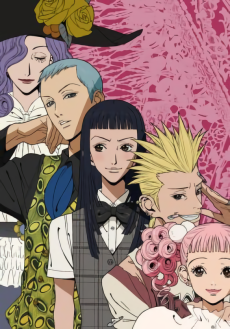 ANIME ComedyParadise Kiss
ANIME ComedyParadise Kiss ANIME ComedyKimi ni Todoke
ANIME ComedyKimi ni Todoke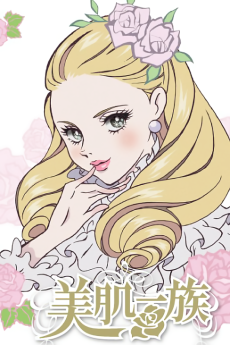 TV SHORT ComedyBihada Ichizoku
TV SHORT ComedyBihada Ichizoku ANIME ComedyFruits Basket
ANIME ComedyFruits Basket ANIME ComedyNet-juu no Susume
ANIME ComedyNet-juu no Susume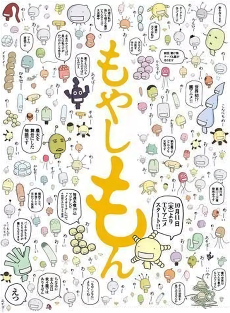 ANIME ComedyMoyashimon
ANIME ComedyMoyashimon MOVIE AdventureHowl no Ugoku Shiro
MOVIE AdventureHowl no Ugoku Shiro
SCORE
- (3.9/5)
MORE INFO
Ended inDecember 31, 2010
Main Studio Brain's Base
Favorited by 1,997 Users


